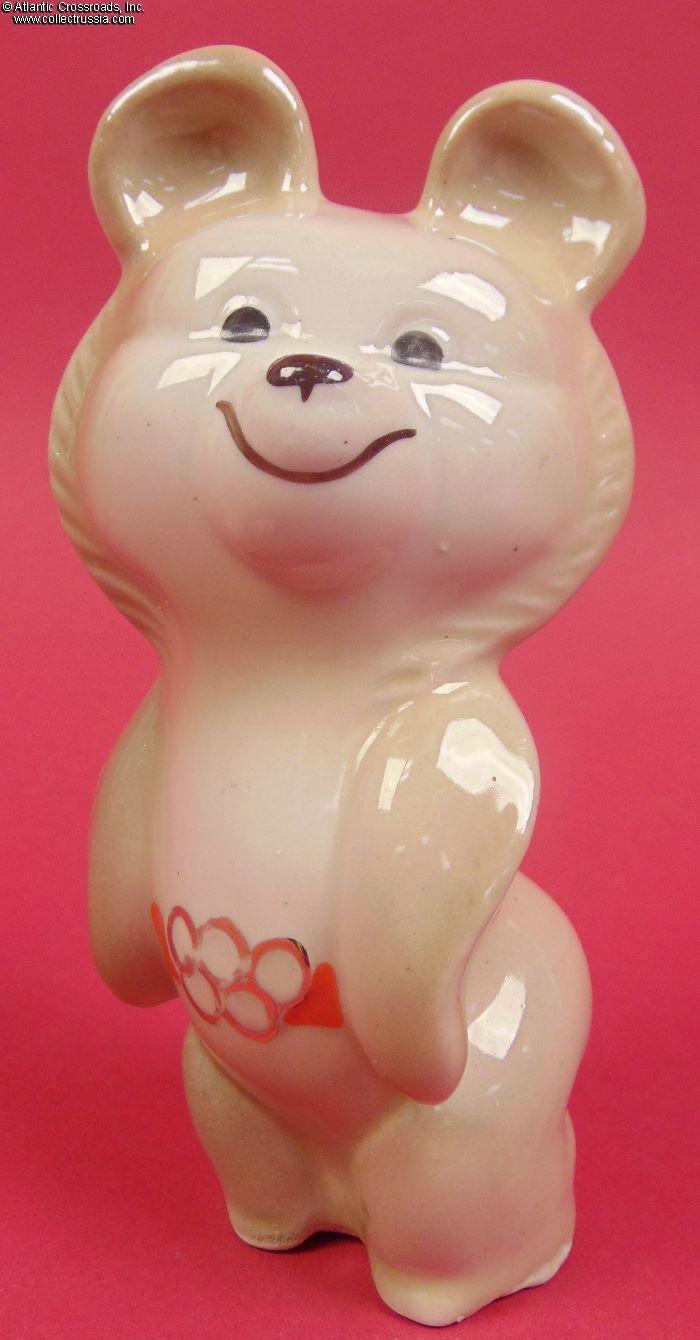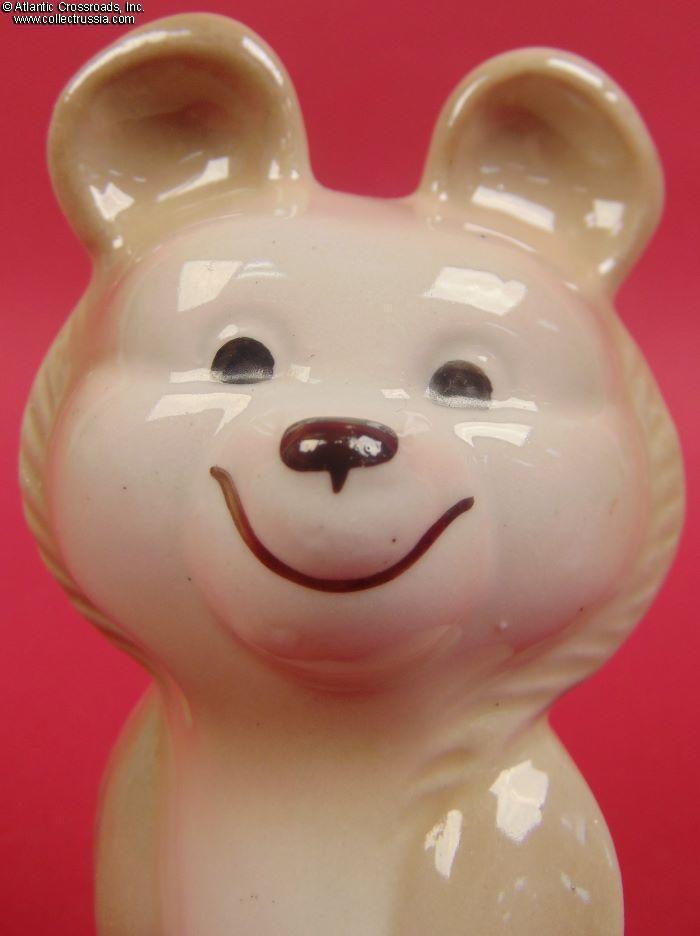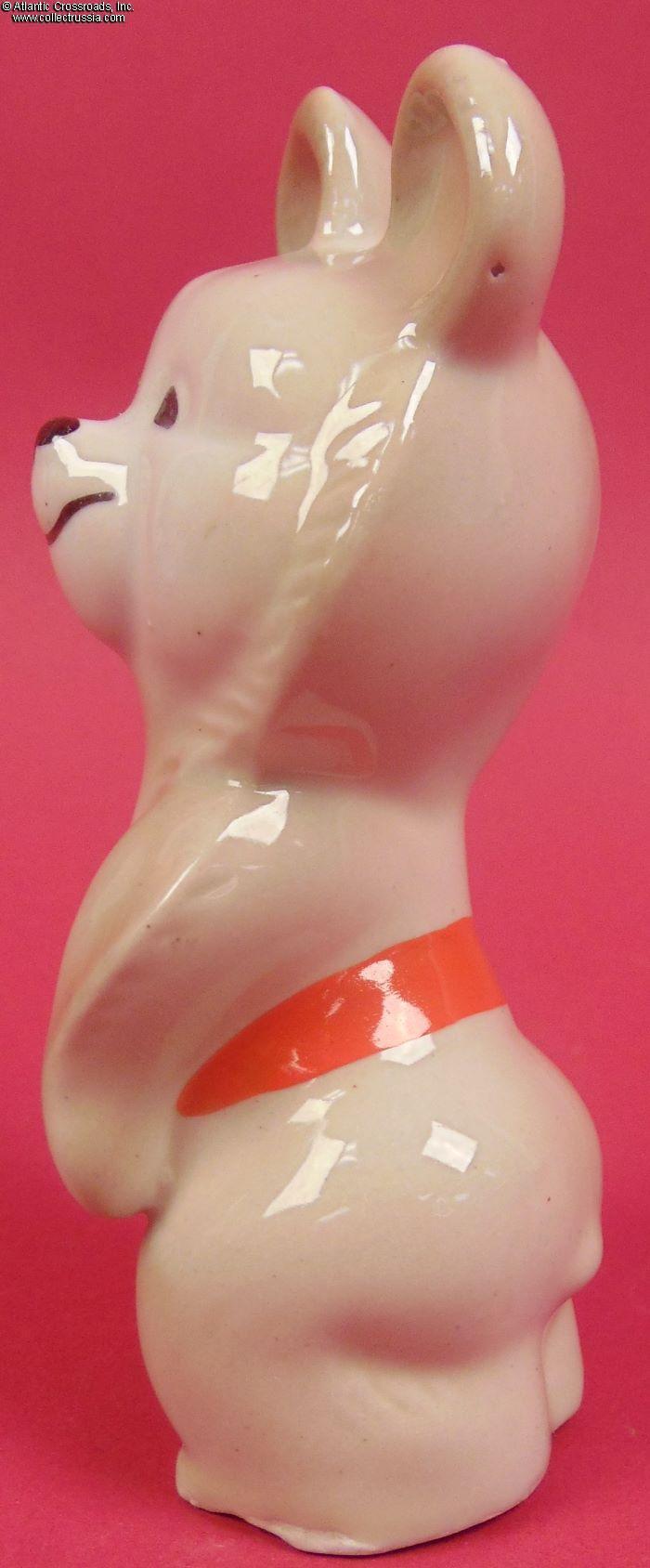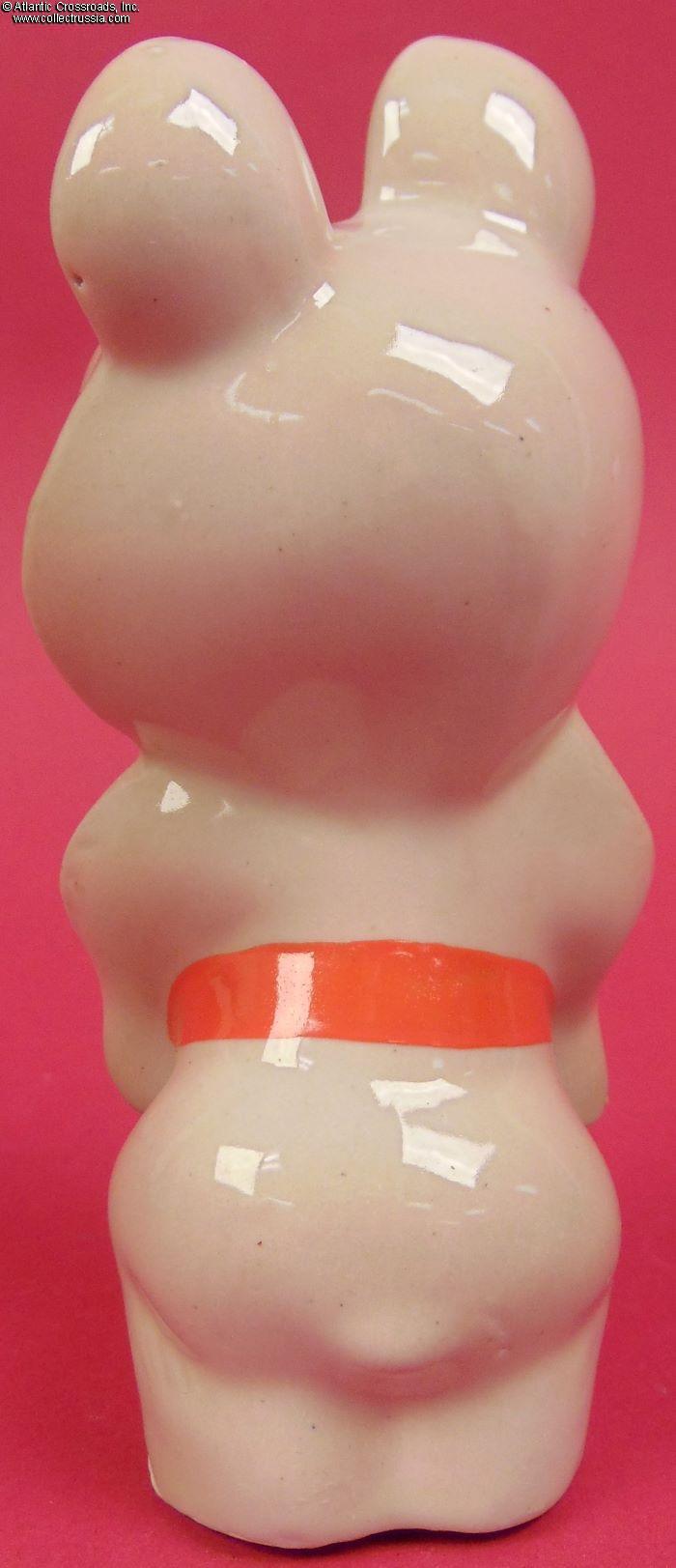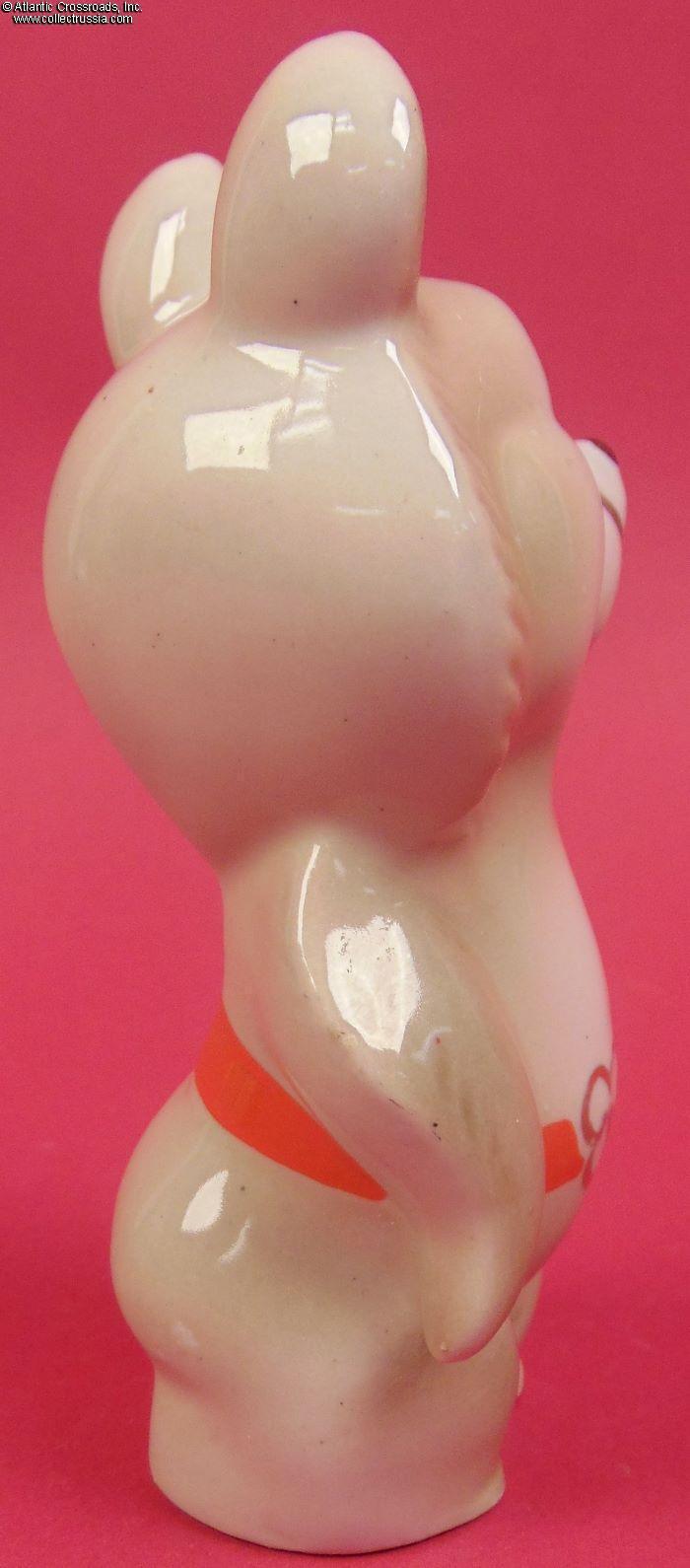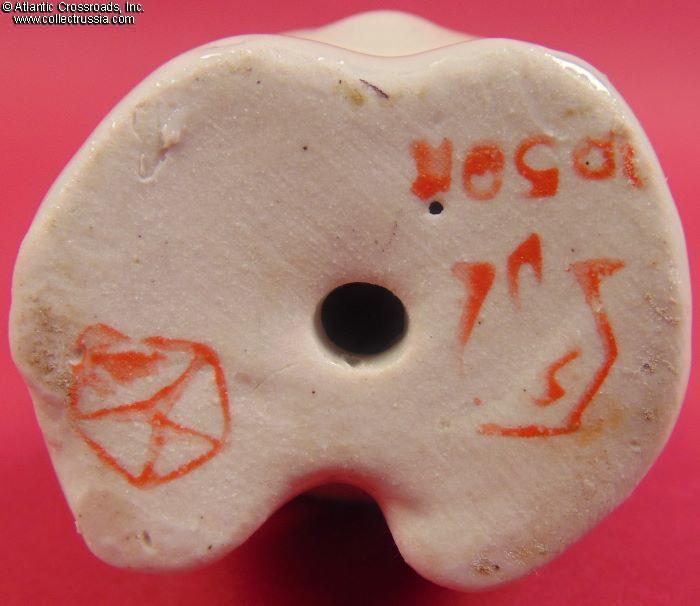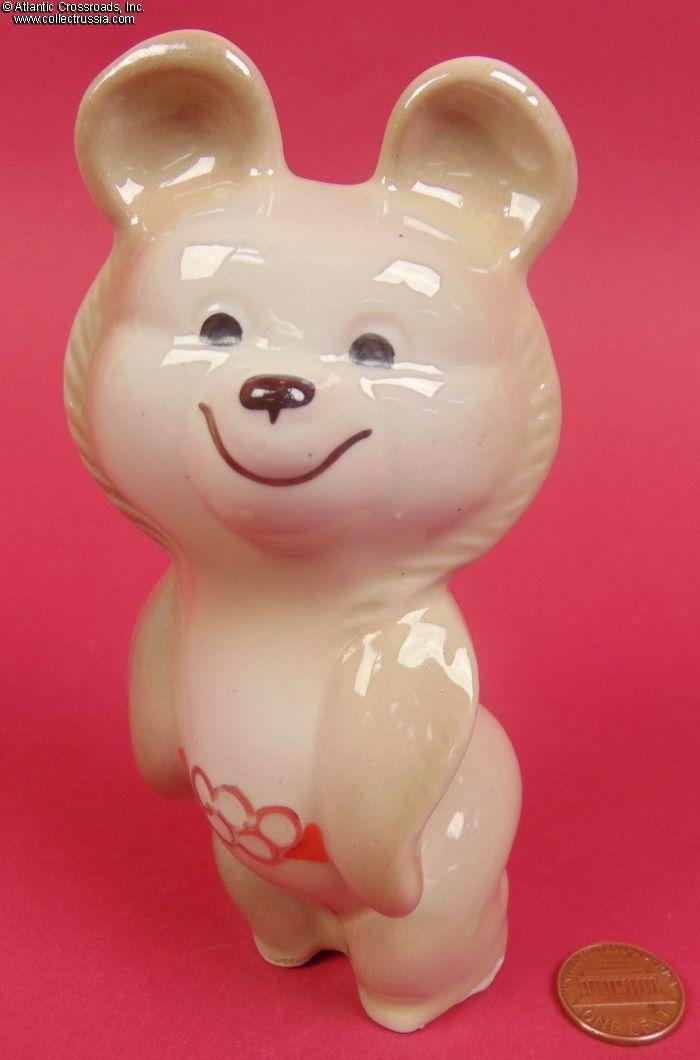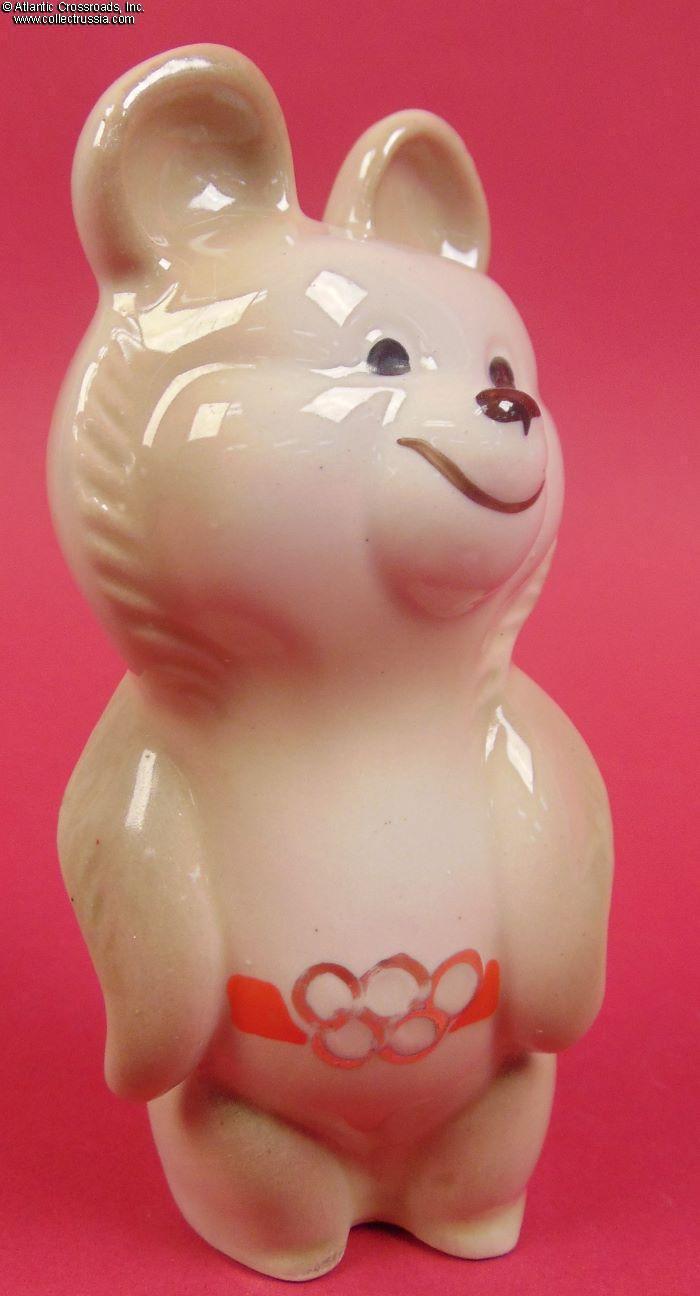
Porcelain bear figurine of Mishka, the official mascot of the 1980 Moscow Olympic Games, by Erevan Faience Factory, Armenia.
This is a scarce, much less common than most, Olympic Mishka. The manufacturer is unusual, the color palette of the figurine is different, and it was made after the Olympics. In the Soviet centralized planned economy, it most likely means that the order for its production came from the government to bolster the memory of the Moscow Olympics in time for the Los Angeles games in 1984. The figurine stands a tad over 5" tall to its ear tips. "Dressed" in a red belt with the golden buckle in the form of 5 joined rings, the symbol of Olympic Games. Maker marked on the bottom. This ver
This is a scarce, much less common than most, Olympic Mishka. The manufacturer is unusual, the color palette of the figurine is different, and it was made after the Olympics. In the Soviet centralized planned economy, it most likely means that the order for its production came from the government to bolster the memory of the Moscow Olympics in time for the Los Angeles games in 1984. The figurine stands a tad over 5" tall to its ear tips. "Dressed" in a red belt with the golden buckle in the form of 5 joined rings, the symbol of Olympic Games. Maker marked on the bottom. This version of the logo of the Yerevan Faience Factory was in use from 1983 to 1990 (fig. # 262 in Volume One of Marks on Soviet Porcelain, Faience, and Majolica, 1917-1991 by Nasonova et al).
In excellent, superb condition. No visible post-production damage of any kind. The gilt of the belt buckle is intact and has retained its original luster.
The Yerevan Faience Factory was established in the Armenian Soviet Socialist Republic in 1947. Initially it used German mold forms and raw materials from Russia and Ukraine. In 1960s-70s, the factory developed very nice lines of porcelain figurines based on Armenian folk art and tradition. In 1976 production of porcelain figurines was stopped, unless it was to fulfil a special government order. In 1990 the factory ceased to exist.
The 1980 summer Olympics in Moscow were the games of the largest boycott in the history of the Olympic movement. In response to the Soviet Union's invasion of Afghanistan in 1979, approximately 60 countries world-wide boycotted the games, led by the USA and its then president Jimmy Carter. Notably, a number of Western countries did not participate in the boycott. Among them were Sweden, Italy, France and Great Britain. This boycott caused an interesting side effect in that, in lieu of a lot of competition, the Soviet Union won 80 gold medals and 195 medals total, the most lopsided Olympic total of the 20th century.
Please note that the penny in our photo is for size reference.
$80.00 Add to cart

